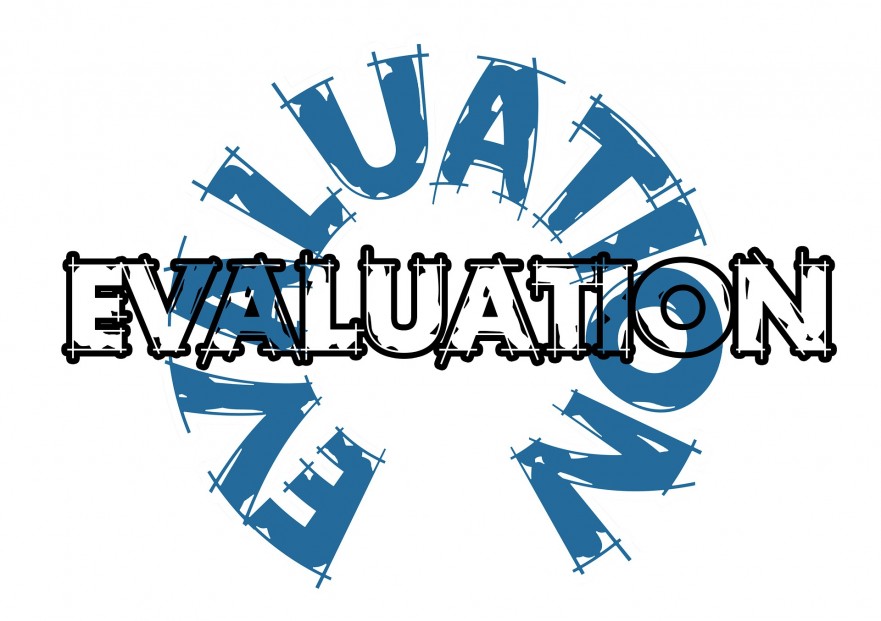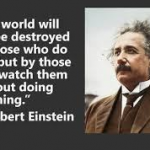I spend a lot of time thinking about my district’s evaluation system these days. As a first-year director of personnel, developing something new, meaningful, and usable is on my short list. After years of being evaluated by our current evaluation system and then more years of evaluating others with it, I now sit in the seat where I have to ask myself: Does this instrument support better teaching? Did it make me a better teacher? Did I ever really use it to support others to improve their teaching?
I’ve spent the year reading other schools’ evaluations. I am left with more questions than answers. Starting with, What is the purpose of evaluations? Is it just a statutory requirement? Or is the purpose to sort and rank teachers? Is it to get rid of the worst teachers? To give skills to all teachers? Do they allow teachers the opportunity to become reflective about their own practice? Can the same district-wide evaluation system work for everyone from a kindergarten teacher to an advanced level CTE engineering teacher to a physical education teacher to a special education classroom teacher? Do value-added evaluations even matter? Especially in a state with a severe teacher shortage where we are happy to keep teachers, can anyone really do all those things on the walkthrough checklist in one lesson? Really, can they?
I may be a Pollyanna, but I do think evaluations matter. I’ve been bitter at times when I’ve felt I was hoop jumping for an evaluator who clearly was not the instruction expert I was (at 24 years old and knowing everything). I’ve felt frustrated about the overwhelming amount of paperwork that goes along with evaluations. In 15 years of teaching, I don’t think I ever really remembered my professional goal until exactly 10 minutes before it was due.
However, I grew from my evaluations. They forced me to see the things that I didn’t always want to see about my teaching; they forced me to ask myself why was I choosing this or that when I planned; they forced me to have a conversation with someone else about my teaching before collaborative conversations were en vogue. Although I have left the classroom, I still crave feedback and evaluations for one simple reason: they help me grow.
Evaluations matter for the teachers I have worked with as well (I hope). There is nothing more powerful than sitting with a novice teacher and guiding them to see their strengths and their leadership that they may not recognize in the everyday grind. Working in a rural setting, I have had the luxury of serving as the evaluator for some of my best friends. It was amazing. I thought it would be weird, but it reinforced why they are my best friends because they are crazy smart and reflective and can teach me about good teaching. Evaluations, when done properly, support teachers becoming more introspective about their own teaching.
Evaluations are also hard, but I always remember the purpose is for teachers to improve their skills. Administrators must be trained in giving feedback and identifying areas that can support improvement. Administrators are teachers and our strong suit isn’t being cut-to-the-chase and unforgiving, but in my opinion, one of our greatest sins is having whole schools of “highly performing teachers” when in reality, we don’t really have whole schools of highly performing teachers. Worse, administrators do not support enough teachers with improvement plans because frankly, we don’t want teachers to leave. Who will replace them? Evaluations are therefore not used as tools to usher teachers out who are harmful for students and schools.
As I am deeply focused on working with my district to improve our evaluation system, I will consider the following:
- Evaluation systems are too long. Charlotte Danielson said she would cut her framework by 75% if she knew it would be used the way it is being used. Marzano said the same about his. Evaluations should be simple and meaningful: that way they can work across all those different areas.
- Everything needs to align, from new teacher training to walkthroughs, to professional development, to what we are evaluating. Time is too precious, resources too few. Alignment is key.
- Top performing teachers should be offered alternative evaluation choices for a period of time. Last year ARS 15-537 was passed allowing for teachers who score in the highest performance classification for three years in a row to be given expedited evaluations as part of an alternative cycle. These teachers can peer evaluate or mentor others as part of their evaluation. Although feedback is always important, administrators must focus their time on new and higher needs teachers. Evaluation season is a blur when you have a huge staff.
- Unnecessary paperwork has to go away. As a principal, I didn’t always even know all the things I was supposed to be collecting. I just collected and smiled. As a teacher, I just typed away to overwhelm my administrator with lots of paper. It seemed impressive. What is it we really need?
- Coaches and evaluators are two different people. Teachers should have access to both to grow. Sometimes, they have to be the same person, but when at all possible, they should not be. Coaches should not evaluate and as an evaluator, I can act as a coach, but it becomes an issue when I then have to be the umpire.
For a career field that spends a lot of time with evaluations, much more time than private industry, the reality is when teachers make the same no matter where they score (301 corrects this a bit) we must really work to make evaluations meaningful for staff and functional for administration. As I continue my quest to create the perfect evaluation system, I am hopeful to hear from you to share what works and what doesn’t for you and your school.










Comments 5
Jamie, I love this topic! As an elementary music teacher, the evaluation instrument frustrates me (it frustrates my administrator also). The same long list of “requirements” must be checked off in a class that has 35 instructional min once per week, as a self contained general core class. It’s the same students, but a completely different instructional setting. Also, on a secondary level, that same set of “requirements” is used for core academic, performance based fine arts classes, CTE, etc. I remember you making a comment regarding using the 5 core Propositions from NBPTS as the basis of an evaluation system. I believe that is an EXCELLENT foundation for teacher evaluation because it is the foundation of good teaching in any subject, on any developmental level, in any setting. I would also like to see the specific details modeled after the requirements in the different certificate areas. NBPTS has done a lot of work to put together their standards, instructions, and expectations….use of that would greatly improve the effectiveness of evaluations for administrators and teachers.
Thank you for sharing. Even as a core social studies teacher, I felt like I was checking the box some days because something had to appear in a lesson. I absolutely understand there are elements and strategies that are effective for student learning, but I also want a system that is flexible enough and evaluators that are well trained enough they can see how each area works a bit differently.
Jaime this is such a timely and wonderfully written blog. Thank you for using this platform to share such an important topic in education right now. There is a great article in ASCD written by Charlottle Daileson that I think you would enjoy and I encourage all of us in education to take a look at it. The article is called “Evaluations That Help Teachers Learn” and in it, Danielson writes “A good system of teacher evaluation must answer four questions: How good is good enough? Good enough at what? How do we know? and Who should decide?” She also outlines problems and challenges in our current teacher evaluation system. I truly believe that teacher evaluations should be used to ensure quality teaching and is designed to be used as opportunity for teacher growth. Anything outside this basic concept can become problematic for our profession. I love when you said, “What is the purpose of evaluations?” It has to start there. We have to be clear and intentional on the reason and purpose for evaluating teachers. It’s time for teacher evaluations to become the catalyst for teachers—and students—to be given the support they want, need, and deserve.
Link to article:
http://www.ascd.org/publications/educational-leadership/dec10/vol68/num04/Evaluations-That-Help-Teachers-Learn.aspx
Treva, I just came back to this and I am so excited. I will use this article and these questions! I am so happy I popped back to this!
This is a great topic! I find evaluations can be, when used effectively, very insightful. Unfortunately, in my experience, too often evaluators simply script a teacher’s 50 minute lessons and then try to check off some boxes. As a very reflective person, I crave specific and concrete examples of where I can improve and where I excelled. This is difficult when an administrator is unfamiliar with the subject they are observing. I want someone to look at how I teach English specifically. How did my students grasp the concepts I was teaching? How did I use student-centered learning to promote engagement, motivation, and retention? What can I do to improve my content teaching? This is hard when the evaluator is simply writing everything I said down. I know this is difficult with the myriad of contents and so few administrators, but this is my ultimate dream.
Thank you sharing your experiences on the other side of the check boxes! Great post!